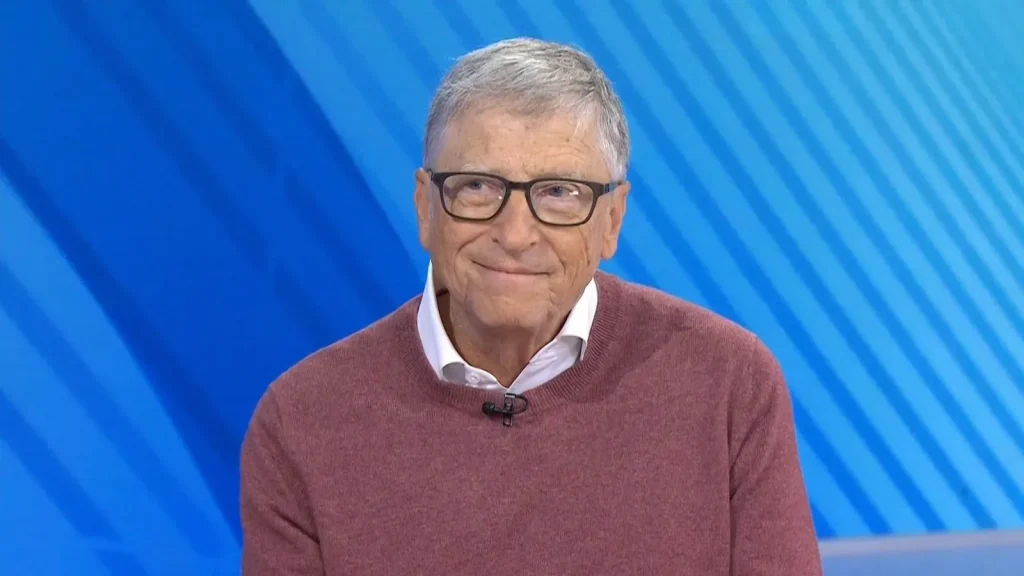Bill Gates has recently voiced his concerns regarding the USAID funding cuts that could potentially stall progress in reducing childhood deaths worldwide. During an interview with The New York Times, he highlighted the alarming possibility that funding reductions—projected to be as severe as 80 percent—could result in an increase in child mortality rates instead of the expected decrease. With a dire prediction that deaths could rise from five million to potentially six million, Gates criticized President Trump and Elon Musk for their roles in this concerning shift. His remarks underscore the critical relationship between government support and philanthropic efforts, especially as he navigates his own plans for the Gates Foundation’s future. As discussions around Elon Musk’s approach to philanthropy and federal funding continue, the impact of these decisions on global health initiatives becomes increasingly pressing.
In a recent commentary, Bill Gates has expressed alarm over the drastic cuts to foreign aid programs, particularly those under USAID, noting that such changes can lead to increased rates of childhood mortality. This drastic shift in funding, described by Gates as unprecedented, raises questions about the durability of efforts to combat child deaths around the globe. Simultaneously, Gates’ remarks also highlight the tension between philanthropic endeavors and government funding policies, drawing attention to the implications of criticisms directed at federal support by high-profile figures like Trump and Musk. As Gates prepares to phase out his foundation, the intersection of wealth, philanthropic responsibility, and government budget allocations will be crucial in shaping the future of global health initiatives. The relationship between major philanthropic contributions and government funding underscores a critical dialogue on how to best support vulnerable populations in need.
Bill Gates on USAID Funding Cuts and Childhood Deaths
In a candid interview with The New York Times, Bill Gates expressed grave concerns over the significant USAID funding cuts instituted under the Trump administration. He highlighted that such drastic reductions could severely hinder progress in combating childhood mortality. Gates asserted that the expected decline in childhood deaths from five million to four million might instead reverse, with numbers potentially spiking to six million without substantial policy interventions. This alarming prediction underscores the critical link between financial support for international aid programs and vital health outcomes for vulnerable populations.
Gates emphasized the often-overlooked reality that the impact of funding cuts can ripple through various sectors, especially in global health initiatives. He firmly believes that each deduction equates to lives at stake, as reduced funding directly correlates with fewer resources for preventive healthcare, vaccinations, and essential services for children. The possibility of increased childhood deaths due to the USAID budget cuts not only risks undermining previous achievements but poses a moral dilemma for policymakers and philanthropists alike.
Frequently Asked Questions
How do Bill Gates’ criticisms relate to USAID funding cuts?
Bill Gates has criticized funding cuts to USAID, expressing concerns that reductions will lead to an increase in childhood deaths globally. He highlighted that without adequate funding, the number of childhood deaths could rise from an expected decrease of five million to six million, signaling the detrimental impact of the cuts.
What impact do the Gates Foundation funding cuts have on childhood deaths?
The Gates Foundation funding cuts, exacerbated by the overall decrease in USAID funding, threaten to reverse progress in reducing childhood deaths. Bill Gates emphasized that significant funding reductions could lead to higher mortality rates among children who rely on support from international aid.
What did Bill Gates say about Trump regarding USAID funding cuts?
Bill Gates expressed mixed sentiments about President Trump’s policies on USAID funding. Initially impressed by Trump’s engagement on global issues, Gates later criticized the nearly 80 percent cuts to USAID funding that he believes undermine efforts to reduce childhood deaths.
How does Elon Musk’s philanthropy relate to Bill Gates and USAID cuts?
Bill Gates criticized Elon Musk in the context of USAID funding cuts, implying that Musk’s advocacy for trimming government spending indirectly contributes to adverse outcomes like increases in childhood mortality. Gates pointed out that while Musk pledged to give significantly, immediate reductions in USAID funding have critical repercussions.
What are the long-term implications of Bill Gates winding down the Gates Foundation on USAID funding?
As Bill Gates plans to gradually wind down the Gates Foundation by 2045, his concerns about USAID funding cuts become increasingly pertinent. Gates aims to invest his wealth in global health initiatives, and without the support of the Foundation alongside USAID, efforts to combat childhood deaths may face serious challenges.
| Key Point | Details |
|---|---|
| Bill Gates on Childhood Deaths | Gates claims that cuts to USAID funding could increase childhood deaths from 5 million to 6 million. |
| Criticism of Funding Cuts | Gates is shocked by the cuts, which are nearly 80%, far exceeding his expectations of 20%. |
| Comments on Trump and Musk | Gates expressed mixed feelings about Trump’s engagement but criticized Musk for impacting the USAID budget negatively. |
| Gates Foundation Future | Gates plans to wind down the foundation by 2045, donating nearly all his wealth. |
Summary
Bill Gates USAID funding cuts are a critical issue, highlighting the potential rise in childhood deaths due to substantial reductions in funding. Gates has raised alarms that funding cuts could reverse progress in reducing child mortality rates. His criticism of influential figures like President Trump and Elon Musk underscores the urgency of this matter, as Gates emphasizes his commitment to philanthropy through the Gates Foundation, which is expected to close by 2045. The implications of these funding decisions extend beyond numbers, affecting the lives of the world’s poorest children.

